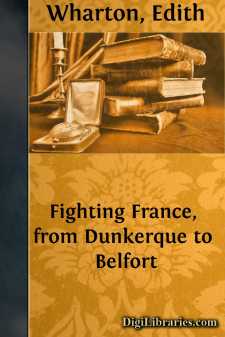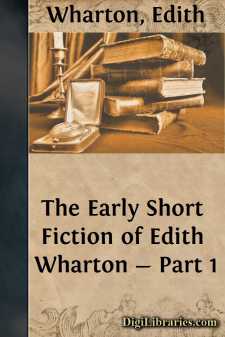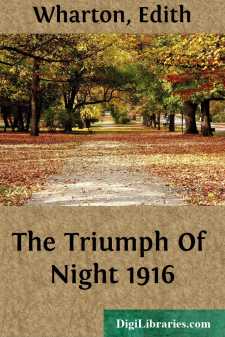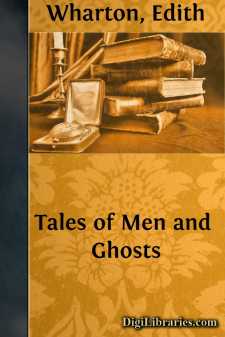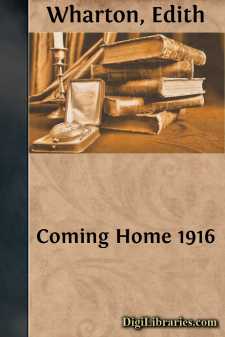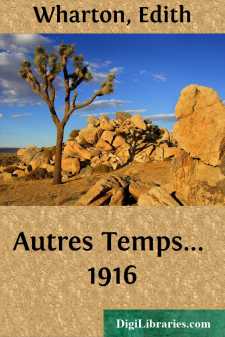Categories
- Antiques & Collectibles 13
- Architecture 36
- Art 48
- Bibles 22
- Biography & Autobiography 815
- Body, Mind & Spirit 144
- Business & Economics 28
- Children's Books 18
- Children's Fiction 14
- Computers 4
- Cooking 94
- Crafts & Hobbies 4
- Drama 346
- Education 58
- Family & Relationships 59
- Fiction 11834
- Games 19
- Gardening 17
- Health & Fitness 34
- History 1378
- House & Home 1
- Humor 147
- Juvenile Fiction 1873
- Juvenile Nonfiction 202
- Language Arts & Disciplines 89
- Law 16
- Literary Collections 686
- Literary Criticism 179
- Mathematics 13
- Medical 41
- Music 40
- Nature 179
- Non-Classifiable 1768
- Performing Arts 7
- Periodicals 1453
- Philosophy 65
- Photography 2
- Poetry 896
- Political Science 203
- Psychology 44
- Reference 154
- Religion 515
- Science 126
- Self-Help 85
- Social Science 83
- Sports & Recreation 34
- Study Aids 3
- Technology & Engineering 59
- Transportation 23
- Travel 463
- True Crime 29
Edith Wharton
Edith Wharton (1862-1937) was an American novelist and short story writer best known for her works exploring the lives and morals of the American upper class, including her Pulitzer Prize-winning novel "The Age of Innocence." Her writing style combined keen social observation with vivid, detailed prose, making her a significant literary figure of the early 20th century. Wharton was also an accomplished designer, traveler, and the first woman to win the Pulitzer Prize for Fiction.
Author's Books:
Sort by:
by:
Edith Wharton
AUGUST On the 30th of July, 1914, motoring north from Poitiers, we had lunched somewhere by the roadside under apple-trees on the edge of a field. Other fields stretched away on our right and left to a border of woodland and a village steeple. All around was noonday quiet, and the sober disciplined landscape which the traveller's memory is apt to evoke as distinctively French. Sometimes, even to...
more...
by:
Edith Wharton
It was last winter, after a twelve years' absence from New York, that I saw again, at one of the Jim Cumnors' dinners, my old friend Halston Merrick. The Cumnors' house is one of the few where, even after such a lapse of time, one can be sure of finding familiar faces and picking up old threads; where for a moment one can abandon one's self to the illusion that New York humanity is...
more...
by:
Edith Wharton
THE Hermit lived in a cave in the hollow of a hill. Below him was a glen, with a stream in a coppice of oaks and alders, and on the farther side of the valley, half a day's journey distant, another hill, steep and bristling, which raised aloft a little walled town with Ghibelline swallow-tails notched against the sky. When the Hermit was a lad, and lived in the town, the crenellations of the walls...
more...
by:
Edith Wharton
"Oh, there IS one, of course, but you'll never know it." The assertion, laughingly flung out six months earlier in a bright June garden, came back to Mary Boyne with a sharp perception of its latent significance as she stood, in the December dusk, waiting for the lamps to be brought into the library. The words had been spoken by their friend Alida Stair, as they sat at tea on her lawn at...
more...
by:
Edith Wharton
"You ought to buy it," said my host; "it's just the place for a solitary-minded devil like you. And it would be rather worth while to own the most romantic house in Brittany. The present people are dead broke, and it's going for a song—you ought to buy it." It was not with the least idea of living up to the character my friend Lanrivain ascribed to me (as a matter of fact,...
more...
by:
Edith Wharton
"You ought to buy it," said my host; "its Just the place for a solitary-minded devil like you. And it would be rather worth while to own the most romantic house in Brittany. The present people are dead broke, and it's going for a song—you ought to buy it." It was not with the least idea of living up to the character my friend Lanrivain ascribed to me (as a matter of fact, under...
more...
by:
Edith Wharton
It was clear that the sleigh from Weymore had not come; and the shivering young traveller from Boston, who had counted on jumping into it when he left the train at Northridge Junction, found himself standing alone on the open platform, exposed to the full assault of night-fall and winter. The blast that swept him came off New Hampshire snow-fields and ice-hung forests. It seemed to have traversed...
more...
by:
Edith Wharton
"WHAT'S become of the Daunt Diana? You mean to say you never heard the sequel?" Ringham Finney threw himself back into his chair with the smile of the collector who has a good thing to show. He knew he had a good listener, at any rate. I don't think much of Ringham's snuff-boxes, but his anecdotes are usually worth while. He's a psychologist astray among bibelots, and the...
more...
by:
Edith Wharton
The young men of our American Relief Corps are beginning to come back from the front with stories. There was no time to pick them up during the first months—the whole business was too wild and grim. The horror has not decreased, but nerves and sight are beginning to be disciplined to it. In the earlier days, moreover, such fragments of experience as one got were torn from their setting like bits of...
more...
by:
Edith Wharton
Mrs. Lidcote, as the huge menacing mass of New York defined itself far off across the waters, shrank back into her corner of the deck and sat listening with a kind of unreasoning terror to the steady onward drive of the screws. She had set out on the voyage quietly enough,—in what she called her "reasonable" mood,—but the week at sea had given her too much time to think of things and had...
more...


